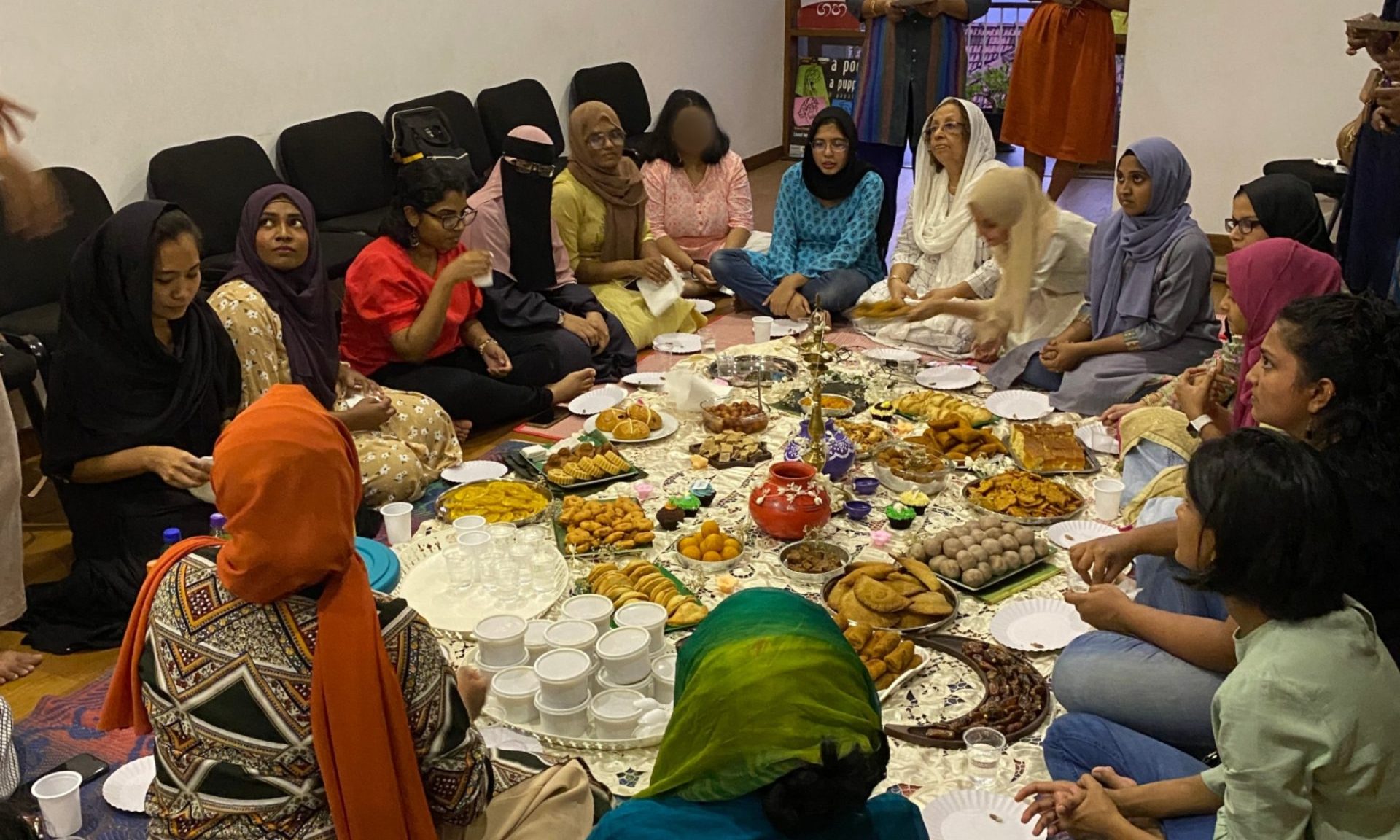I had the pleasure of attending the interfaith Ifthar organized by Sisterhood Initiative held on 8 April. April 2023 was a nuanced push for diversity with Easter, Sinhala & Tamil New Year and Ramadan falling together in the same month. It was a month for reflection for Sri Lanka.
The interfaith Ifthar began with sharing what faith means to us and how a physical artefact reminds us of this. This was a grounding experience with many thoughtful perspectives being shared. It reminded me that even though we belonged to diverse faiths, the focus on the core of spirituality of love and kindness remains common.
A participant shared when she was experiencing a tough time, looking at a leaf and its structure and function reminds her about her faith. With trees all around, the abundance of leaves reminds her of the abundance of faith. The intricate details of every leaf served as a reminder of the attention and care put into creating every one of them.
The session began with gentle reminders of the importance of listening, respect and also prioritizing self-care if any of the conversations triggered and most importantly speaking for oneself as opposed to a whole group.
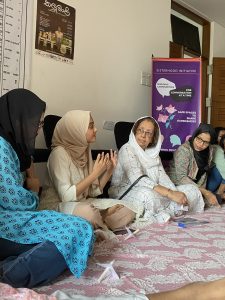
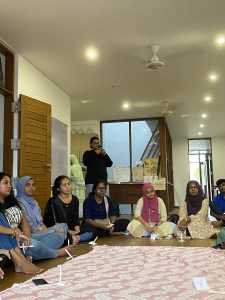
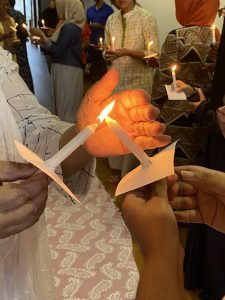
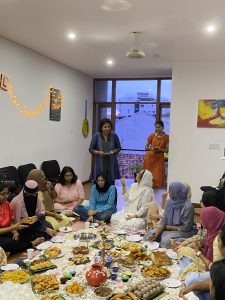
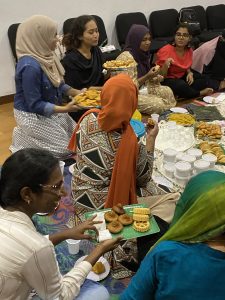

We also went around the room and shared why we wanted to attend this session. I attended the session to find a safe space to remember the victims of the Easter Attack and understand how we can ensure something like this never happens again.
The participants shared about the clear absence of justice, the different types of victims and survivors of the Easter Attack, different forms of accountability such as individual and collective accountability, what it looks like and the way forward.
The participants also touched upon how sentiments of justice, rights and values look in the form of civic action and how responsibility of action beyond dialogue look and mean for each of us. One of the sisters in attendance, who wears a niqab, mentioned how people forgot that there was a human being behind her niqab, during this time.
It's been a week since we held our #InterfaithIftar at Sisterhood Initiative.
— Sisterhood Initiative (@SisterhoodInLK) April 16, 2023
Going beyond sharing a meal — dialogue between our communities is a crucial way towards reconciliation. Sharing food & traditions makes difficult conversations a little easier. pic.twitter.com/DSORU0jbsw
The participants shared their frustration about the absence of justice, their experiences of discrimination and their fear of prosecution for being an individual of faith. The challenge of inter-faith and intra-faith unity was also shared during the event. A discussion on the different forms of accountability was discussed and it was stressed that the need for justice is critical.
The evening concluded with breaking fast at sunset with a colourful and diverse iftar table with dishes from different communities and stories behind each dish was shared. The interfaith Ifthar event itself was a symbolic and starting step towards embracing diversity. The appalling incident that occurred on the 9th of April at the interfaith Ifthar in Galle Face reflects the force being used to interpret diversity as an enemy. Individuals from different communities were not allowed to participate by the Sri Lankan Police.
09th of April 2023
— Anuruddha Bandara (@anuruddha_lka) April 9, 2023
Police officers ordering a devotee to say a prayer "salath" if they want to enter the galleface premises to join the ifthar.
This is clearly a violation of basic human rights and right to follow a religion. @RW_UNP @ThyagiR @amnestysasia @1sabrinasymons pic.twitter.com/DqsHB0Q9sl
Sri Lankans have always prided themselves in celebrating interfaith events from a young age, at school but not all events are celebrated. When Sri Lankans are taking steps to bridge this gap by creating spaces to learn and explore, barring the right to do so is a gross violation of human rights. Reconciliation cannot be limited to only sharing food with each other.
Spaces where there is no dialogue, where discussions do not take place would not pave the path for reconciliation. Interfaith events have been happening for years, yet Sri Lanka is still plagued with hate speech, division and systemic racism.
It is evident that interfaith events with unsafe discussion spaces do not serve its purpose. In a country where uncomfortable conversations surrounding diversity in ethnicity and faith are taboo, the very basic symbolism of unity and celebrations being denied to Sri Lankans showcases a grey space for reconciliation and peacebuilding.
Thus, as Sri Lankans, we are in dire need of safe spaces to have uncomfortable and difficult conversations about our experiences, transitional justice, rights, unlearning, learning and healing. When events symbolise unity in diversity are attacked; it is visible that the right to transitional justice, and reparations lies amidst a narrow thorny path.
The roadmap to peace for Sri Lankans begins with uncomfortable conversations, accountability, justice which then leads to reconciliation and peace. For we all are our human and it is proven psychology that human nature seeks justice for it heals our pain and allows us to move to the next step in the path. All the rights and choices we have now, are fruits of thorny labor. Justice is beyond aesthetics of interfaith events. It is a struggle that has spanned over decades and still a lived struggle.
This article was written by Hafsah Muheed, a former board member of SL Unites and current member of Sisterhood Initiative. Hafsah is a human rights advocate and sustainability practitioner. In 2022, she was recognized under UN Women’s 30 for 2030.
